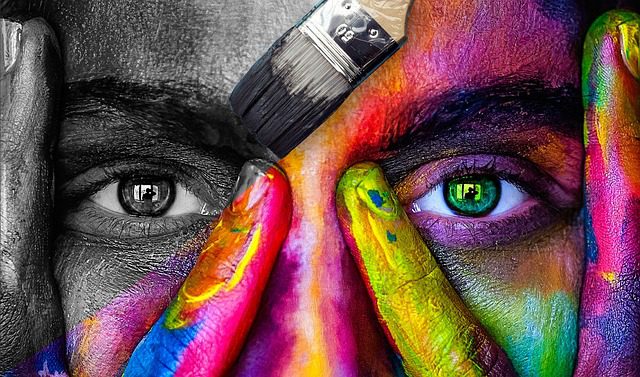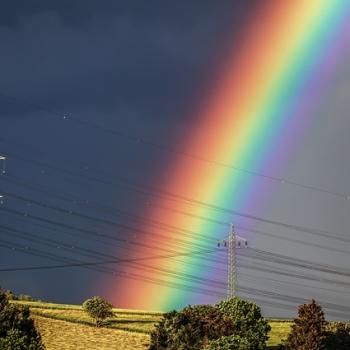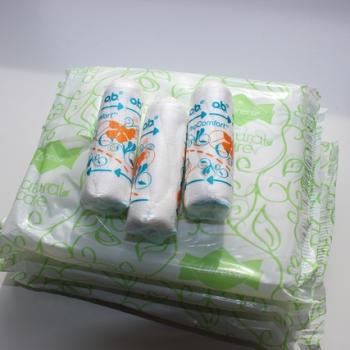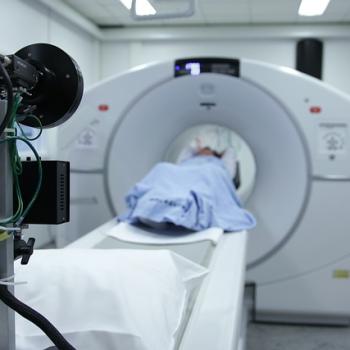
Today on Twitter I saw a meme, being shared approvingly by people in the conservative Catholic homeschooling world. It portrayed a black stick figure family– a small one by Catholic homeschooling standards, only a mother and father and two children. If a family that size had walked into one of my conservative Catholic homeschooling get-togethers when I was a girl, we’d have gossiped that they were on birth control. This family was covered by a wide black umbrella, held up by the mom and dad. The umbrella was deflecting a curiously viscous stream of rainbow-colored pigment, which poured down from above and splashed over the edge of the umbrella. In another moment, the father would have had a red wrist and the mother would have had a purple one, but at the moment, the family was safely black and white.
The Catholic parents were cheering that this is exactly why they homeschooled.
Which is odd, because I was also raised in a deeply conservative Catholic family– one that sent the children to Catholic schools at first and then homeschooled– and that’s not where the rainbow came from.
The first time I heard about gay and lesbian people, I was about ten, my daughter’s age. I was an advanced reader for my age, so someone had given me a subscription to a Catholic magazine for teenagers. I read an advice column question about what to tell a friend who had just come out of the closet. The priest who wrote the column reminded her that homosexuality was always wrong, but he didn’t say what homosexuality was. I asked my mother what “gay” and “homosexuality” meant, and was told they were a deeply disordered and selfish way of thinking that used to be classified as a mental illness, but in our pagan culture it wasn’t.
We were, at that point, deep in the brainwashing of our own particular sect of the Charismatic Renewal, so we all believed as a matter of course that the whole world was evil and in a conspiracy to thwart God’s will. Everything was bad, everything was evil, everything was a gateway to the demonic. So when I heard my mother say that a dangerous and harmful mental illness was now considered perfectly normal by the bad old world, it didn’t surprise me. I was scared, as I always was, but I wasn’t surprised.
It was around the same time that I first heard about transgender people. I heard my mother repeat that there was a kind of doctor, a bad, evil, horrible doctor, who would give a woman surgery to make her look like a man or a man to look like a woman. I hated and feared that hypothetical doctor, as I was supposed to do. The terrifying image of a doctor cutting into me and forcing me to be a boy would flash across my mind before I went to sleep at night, along with all the other terrifying images that Charismatic children fear. But for a moment, just an instant, before I was afraid, I was happy.
Because, for just a moment, an image flashed across my mind that wasn’t scary.
The image was of me, a version of me in a suit and tie with short hair, running up to my best friend, Julia. And I took Julia by the arms and looked into her beautiful blue-green eyes, and said “Isn’t this great? Now we can get married!”
And then I dismissed that thought as silly, and didn’t think about it again for a long time.
We were carefully protected from finding out anything about queer people while we homeschooled. When the Bill Nye episode that mentions AIDS came on the television my mother screamed and turned it off. When Sesame Street portrayed a female Muppet playing with a truck while Harry Monster dressed his doll, we were told that was silly and “confusing people about their gender.”
I internalized all the hate; I said the requisite horrible things about Rosie O’Donnell and Ellen DeGeneres, even though I barely knew who they were. When a gay man came to the door with a petition of some sort for my mother to sign, my mother slammed the door in his face and I thought it was just. But somewhere inside me I felt embarrassed just the same.
When I was attending community college, long before I came to Steubenville and went to Franciscan University, I mentioned to my father that one of the poetry students had come out of the closet to his parents in his final project for the semester. But the parents didn’t seem to have gotten the point. My father said they were lucky to have not gotten the point. “Can you imagine how awful that would be?”
And I didn’t talk about it again, and I didn’t think about it again, for a long time.
I am thinking about it now.
I am thinking about the nights I stayed awake fearing an imaginary doctor who would make me into something I didn’t want to be, but something that could marry Julia and be happy. I am thinking about the even worse nightmares that came later, the ones I still have sometimes, about somebody vivisecting me, cutting me apart and melting me until I was a solid and unfeeling lump of scar tissue like a Barbie doll with her plastic underwear printed on, to make me into a person who felt nothing I shouldn’t feel. I am thinking about the nights I was afraid God would damn me because I thought the wrong thing when I went to a slumber party with my conservative Catholic homeschooled friends– and how I still feel that I’m going to hell. I am thinking about the time I admitted to my mother that “I think I’m homosexual,” and she informed me “you’re not, because if you were, I’d shoot you and put us both out of our misery.” And I stopped listening to the part of me that felt that way, because I wanted to be good. But that part didn’t stop existing.
I am thinking about the fact that I still grew up to be a married woman and a practicing Catholic with a practicing Catholic child, because it turns out that being pansexual doesn’t turn you into a monster. I was a human all along.
I am considering that I only really came out of the closet to myself after I was in my thirties. And I find that the part of me that knows men are beautiful is nearing forty years old, but the part of me that knows women are beautiful is still a self-loathing teenager who doesn’t know what to do with herself. And that teenager needs to be healed, and I am trying to be patient with her.
I am pondering how much better it would have been if I’d been allowed to acknowledge all of who I am, and learned that that doesn’t make me a monster, just a different kind of human.
I am thinking about the people I called names, the people I felt justified in despising, the man with the door slamming in his face. And I am sorry.
Recently I searched Julia’s full name on social media, and found that she had indeed gotten married, to a man, in a beautiful Orthodox ceremony with two jeweled crowns. And I was glad for her– so genuinely glad, so hopeful that her life would be full of happiness, so pleased that she’d found love. But I was also sad.
None of that came from outside the umbrella.
None of the LGBTQ curse that wasn’t a curse was poured down on me by society. It was in me. It was in me whether I was allowed to know what it was or not. I tried to keep it inside but it all came gushing out. All the big black umbrella did was make that hurt.
I am not using that umbrella on my daughter.













